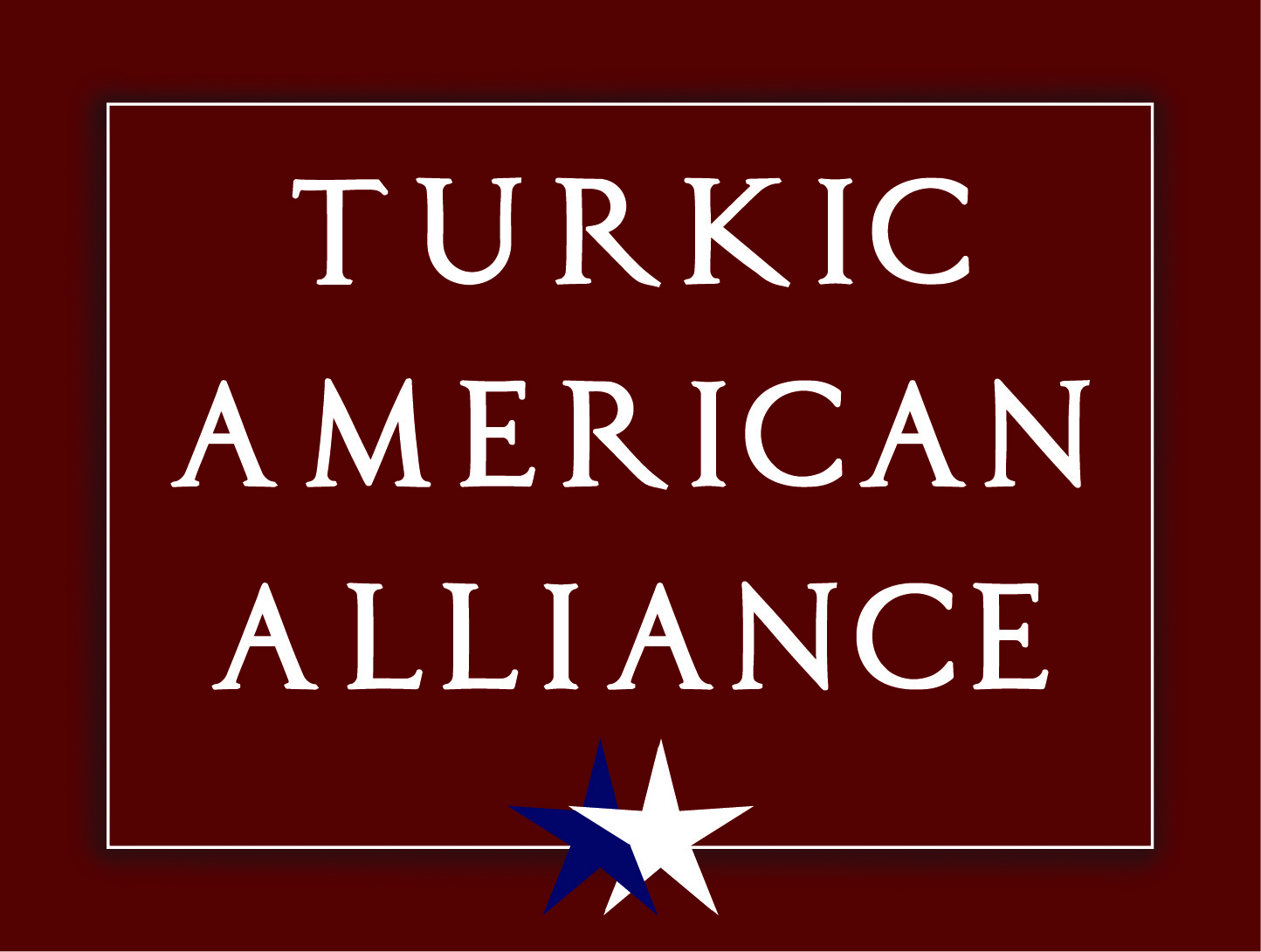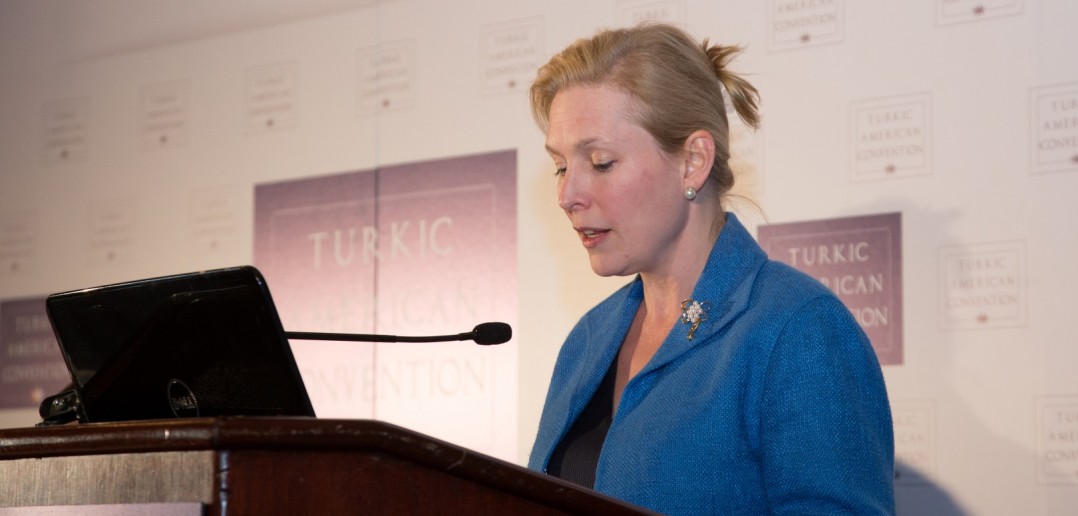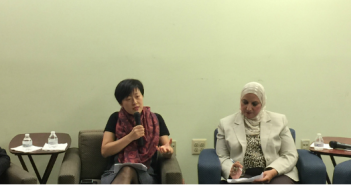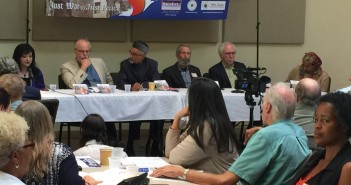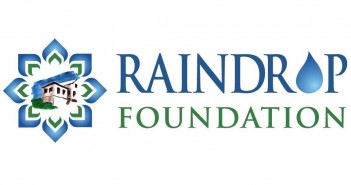David Koranyi, Acting Director of the Dinu Patriciu Eurasia Center of the Atlantic Council, moderated a panel discussion on the new energy developments in the Eurasia and its political implications.
Forum Session III had the distinct honor and privilege of hearing remarks delivered by Senator Gillibrand (NY), who represents a constituency with the highest concentration of Turkic Americans in the U.S. According to Sen. Gillibrand, “Each of you are helping to strengthen this bond [between the U.S. and Turkey]by telling your stories, the beautiful story of Turkey’s history, and the incredible opportunity we have in our relationship. Thank you again for coming here again this year to work together to celebrate our friendship and bonds, and I hope you have another successful conference.”
Andrea Lockwood, Deputy Assistant Secretary for the Middle East, Africa and Eurasia at the Department of Energy, encouraged the countries to bolster energy security through energy efficiency. She explained that building a robust energy policy creates security and economic opportunities.
Zhanykoluv Zhumabek, Chairman of the Management Board of the Kazakhstan Association of Entrepreneurs (KAZKA), promoted the idea of doing business in Kazakhstan. He described Kazakhstan’s strong desire to play an important role in the in the New Silk Road initiatives that will increase Eurasia’s prosperity and help to bridge Europe and Asia. He reiterated Kazakhstan’s energy resource strengths by stating that Kazakhstan is ranked 9th in the world in proven recoverable oil reserves, 8th in coal and 2nd in Uranium. Most importantly, Kazakhstan has integrated well into the world economy with its steady 8% GDP growth in the last decade, and has attracted $173 billion in FDI.
Dr. Mamuka Tseretli, Senior Research Fellow at the Central Asia-Caucasus Institute & Silk Road Studies Program Joint Center, began his talk by praising Eurasia’s energy development in the last twenty years through increased access to resources. 2.8 billion barrels flow daily from Eurasia and contribute to global demand. The dreams of opening access to these resources has become a reality due to the cooperation of oil companies and regional governments. This cooperation has led to regional integration and has connected these producers to European and world markets. Dr. Tseretli also maintained that these connections will continue as evidenced by plans to build the Southern Gas Corridor, which is anticipated to provide up to 70 billion cubic meters (bcm) by 2025 to Europe. Therefore, this corridor will bring significant additional resources to European markets and help Europe with its energy diversification efforts.
Eric Stewart, Executive Director of the U.S. Turkmenistan Business Council (USTBC), acknowledged the overall importance of natural resources in connecting individual Eurasian countries to the world economy. The international community should assist these states in choosing the most efficient model of development, as well as in regional and international integration. He mentioned harmonization of customs along with other specific steps that will benefit each state through such cooperation. Mr. Stewart expressed his hopes for a successful development of and integration within the economy of each state as well as at their respective regional levels. These, according to Mr. Stewart, will lead to prospects beyond the highest expectations.
Source: Turkic American Convention
